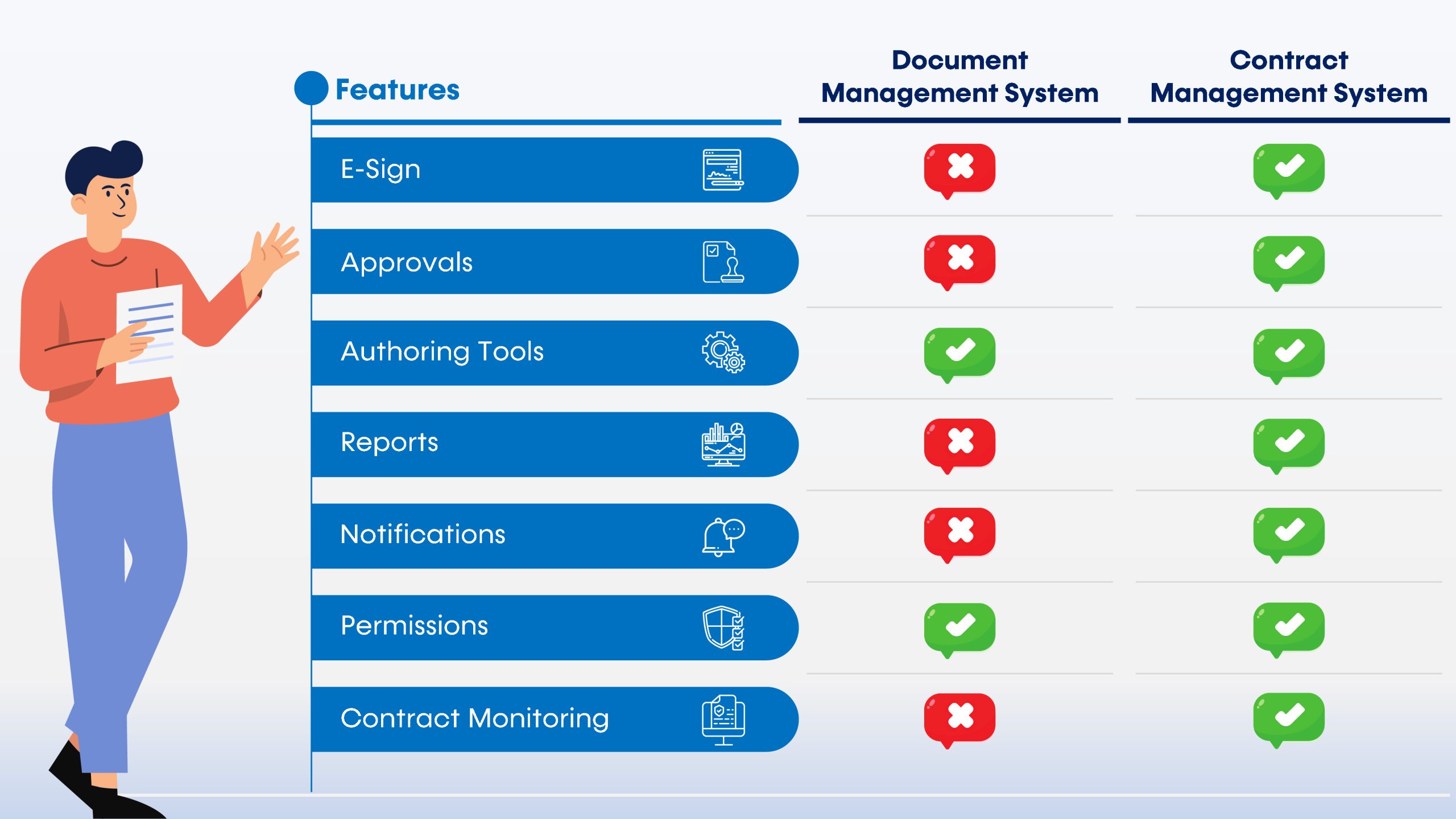Now let us see the differences from a solution point of view
- Objective
- A Document Management System (DMS) is used for creating, editing, storing, retrieving, and managing documents. It facilitates converting physical paper documents to digital versions under a common roof. It also enables the users to work collaboratively on the same document.
- A Contract Management System (CMS) helps to automate the process of a contract lifecycle from contract creation to renewal and execution. It also has e-sign technology integrated to help people collaborate and sign contracts digitally. It helps the legal team easily collaborate and complete the approval process along with the digital signature in a shorter turnaround time.
- Contents
- A DMS includes all contents in document formats. It contains documents related to work-in-progress contracts, the final version of the contract document, etc. But a CMS includes everything related to contract templates, contract approvals, negotiation & obligations including executed contracts.
- Collaboration
- A document can be collaborated on and worked upon easily by multiple people at the same time in DMS. In a CMS collaboration, it is feasible at the process level but not at a document editing level. There is a placeholder for having a sample or template contract under each type. At the process level people can see the status of a particular contract and at what stage it is pending etc.
- Audit History
- Both the systems have audit histories but what information you derive from both the audit histories is different. From a DMS audit history, you might get information related to the author, the time when a document was created and edited, access details of collaborators, etc. A CMS audit history might provide information related to the tracking of the entire contract lifecycle like when and who approved what etc.
Furthermore, let us have a look at the comparison from the features level


Now that we are clear about the features and objectives, it would be a lot easier to decide between the two. A DMS has all the necessary features to store and manage contracts that are previously made. A DMS can help only with the creation part of the contract lifecycle. Whereas a CMS can help a contract pass through the entire contract lifecycle including obligations, approvals, and renewals. A CMS takes care of a contract lifecycle from end to end. But it can be tailored to function on selected parts of the contract lifecycle based on specific needs as well. I can sense your interest in finding the right solution and implementing it. Impiger can help you with your needs.
Impiger has hands-on experience in delivering end-to-end contract management systems for a variety of clients. There have also been instances of altering the system and getting selected parts of the contract lifecycle function based on the client’s need. If you already have an existing system, we can help enhance and fine-tune it as well.
According to a survey by Forrester and Aberdeen, Digitization of contract management has the potential to improve compliance by 55%. Isn’t it an amazing measurable ROI right in front of your eyes to take a call on transforming your contract management process? Get in touch to get expert opinions from us. Our team can work on a customization plan for your organization’s needs.











